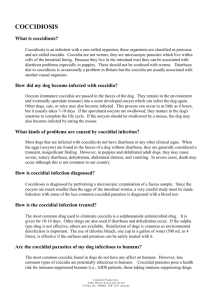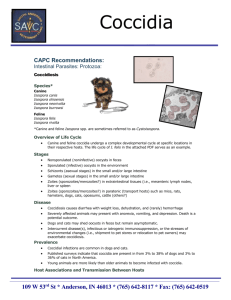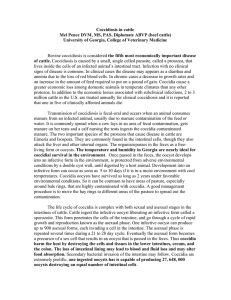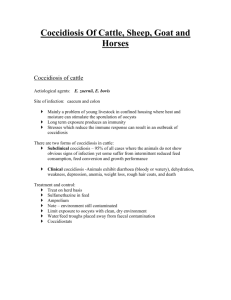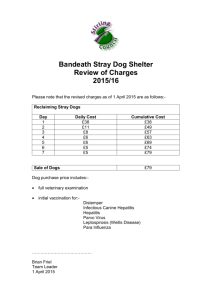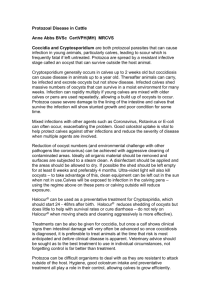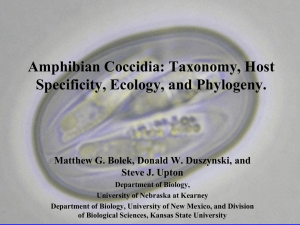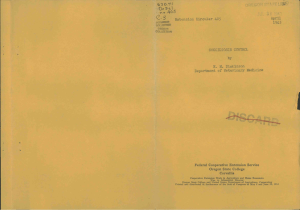CANINE COCCIDIOSIS - Liles Animal Clinic
advertisement
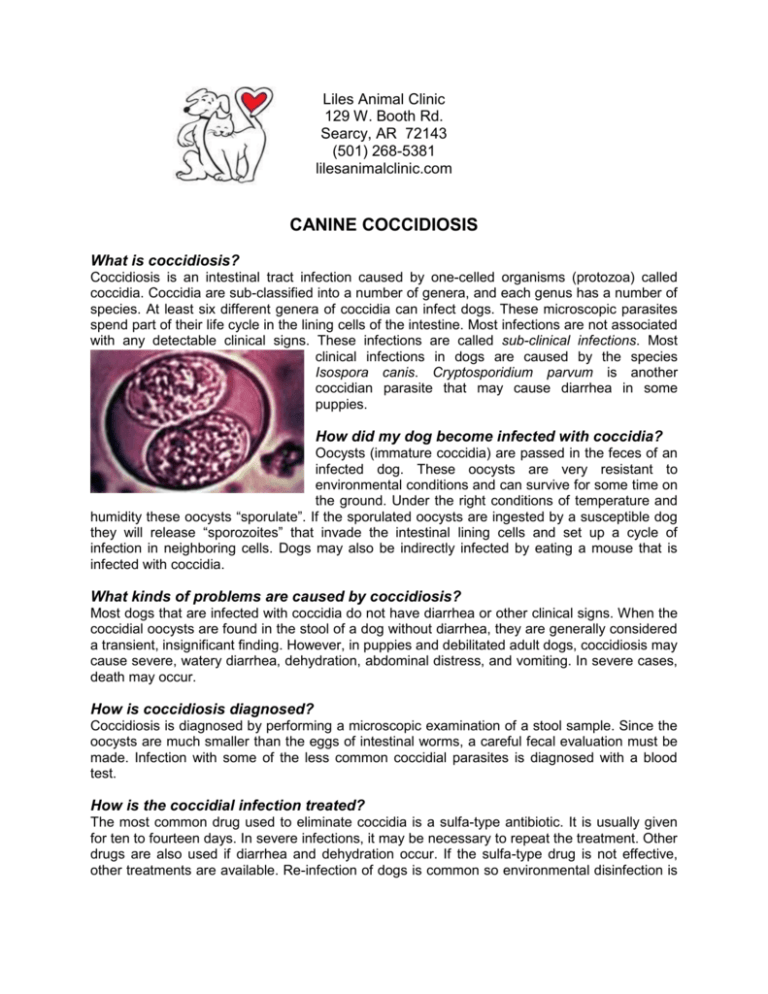
Liles Animal Clinic 129 W. Booth Rd. Searcy, AR 72143 (501) 268-5381 lilesanimalclinic.com CANINE COCCIDIOSIS What is coccidiosis? Coccidiosis is an intestinal tract infection caused by one-celled organisms (protozoa) called coccidia. Coccidia are sub-classified into a number of genera, and each genus has a number of species. At least six different genera of coccidia can infect dogs. These microscopic parasites spend part of their life cycle in the lining cells of the intestine. Most infections are not associated with any detectable clinical signs. These infections are called sub-clinical infections. Most clinical infections in dogs are caused by the species Isospora canis. Cryptosporidium parvum is another coccidian parasite that may cause diarrhea in some puppies. How did my dog become infected with coccidia? Oocysts (immature coccidia) are passed in the feces of an infected dog. These oocysts are very resistant to environmental conditions and can survive for some time on the ground. Under the right conditions of temperature and humidity these oocysts “sporulate”. If the sporulated oocysts are ingested by a susceptible dog they will release “sporozoites” that invade the intestinal lining cells and set up a cycle of infection in neighboring cells. Dogs may also be indirectly infected by eating a mouse that is infected with coccidia. What kinds of problems are caused by coccidiosis? Most dogs that are infected with coccidia do not have diarrhea or other clinical signs. When the coccidial oocysts are found in the stool of a dog without diarrhea, they are generally considered a transient, insignificant finding. However, in puppies and debilitated adult dogs, coccidiosis may cause severe, watery diarrhea, dehydration, abdominal distress, and vomiting. In severe cases, death may occur. How is coccidiosis diagnosed? Coccidiosis is diagnosed by performing a microscopic examination of a stool sample. Since the oocysts are much smaller than the eggs of intestinal worms, a careful fecal evaluation must be made. Infection with some of the less common coccidial parasites is diagnosed with a blood test. How is the coccidial infection treated? The most common drug used to eliminate coccidia is a sulfa-type antibiotic. It is usually given for ten to fourteen days. In severe infections, it may be necessary to repeat the treatment. Other drugs are also used if diarrhea and dehydration occur. If the sulfa-type drug is not effective, other treatments are available. Re-infection of dogs is common so environmental disinfection is important. The use of diluted chlorine bleach [one cup (250 ml) of bleach mixed in one gallon (3.8 L) of water] is effective if the surfaces and premises can be safely treated with it. Are the coccidial parasites of my dog infectious to humans? The most common coccidia found in dogs do not have any affect on humans. However, less common types of coccidia are potentially infectious to humans. One parasite, called Cryptosporidium, may be carried by dogs or cats and may be transmitted to people. This parasite has also been found in the public water supply of some major cites. It poses a health risk for immuno-suppressed humans such as AIDS patients, those taking immune suppressing drugs, cancer patients, or the elderly. Good hygiene and proper disposal of dog feces are important in minimizing risk of transmission of all canine parasites to humans, or to other animals. This client information sheet is based on material written by Ernest Ward, DVM. © Copyright 2005 Lifelearn Inc. Used with permission under license. February 16, 2016
